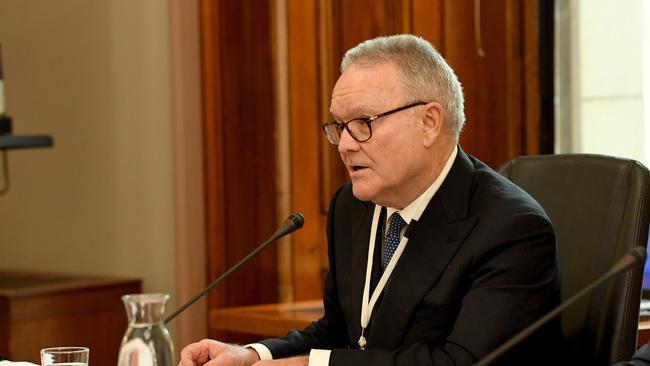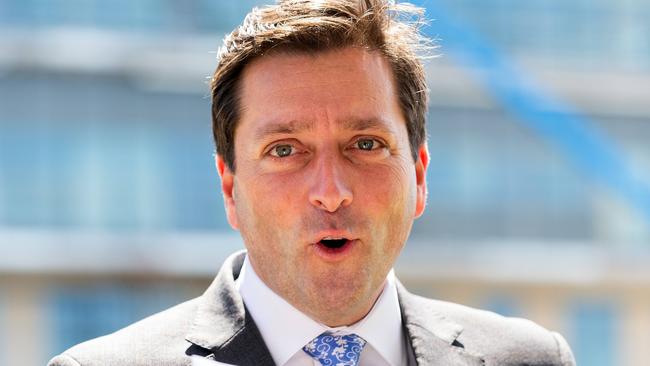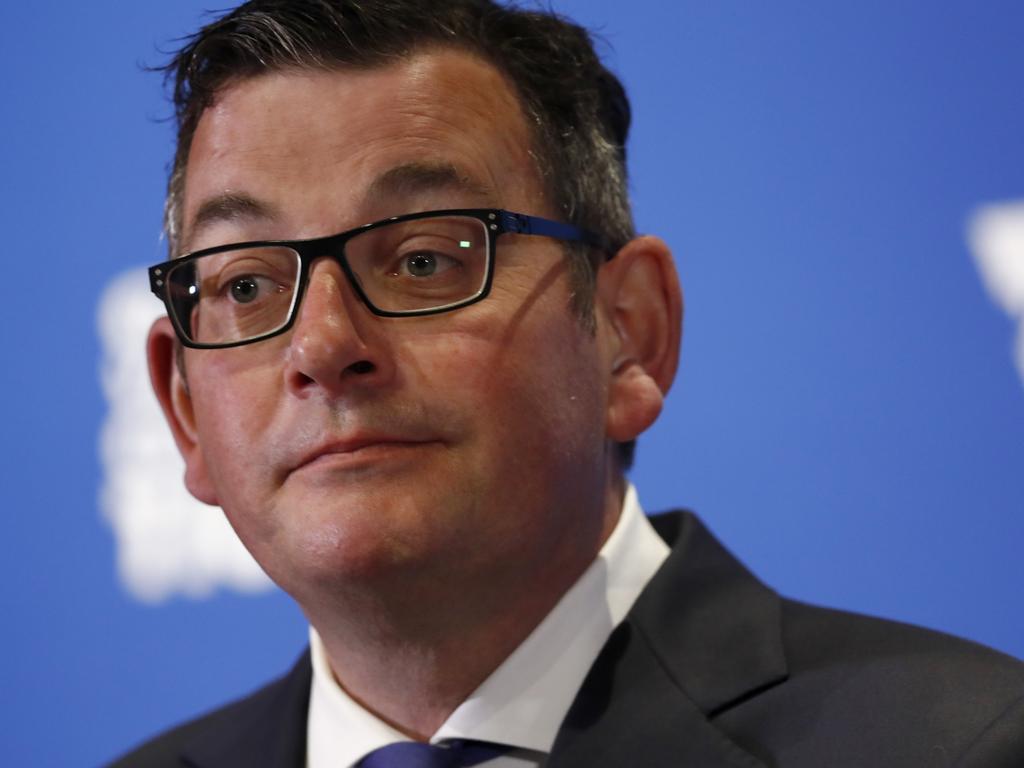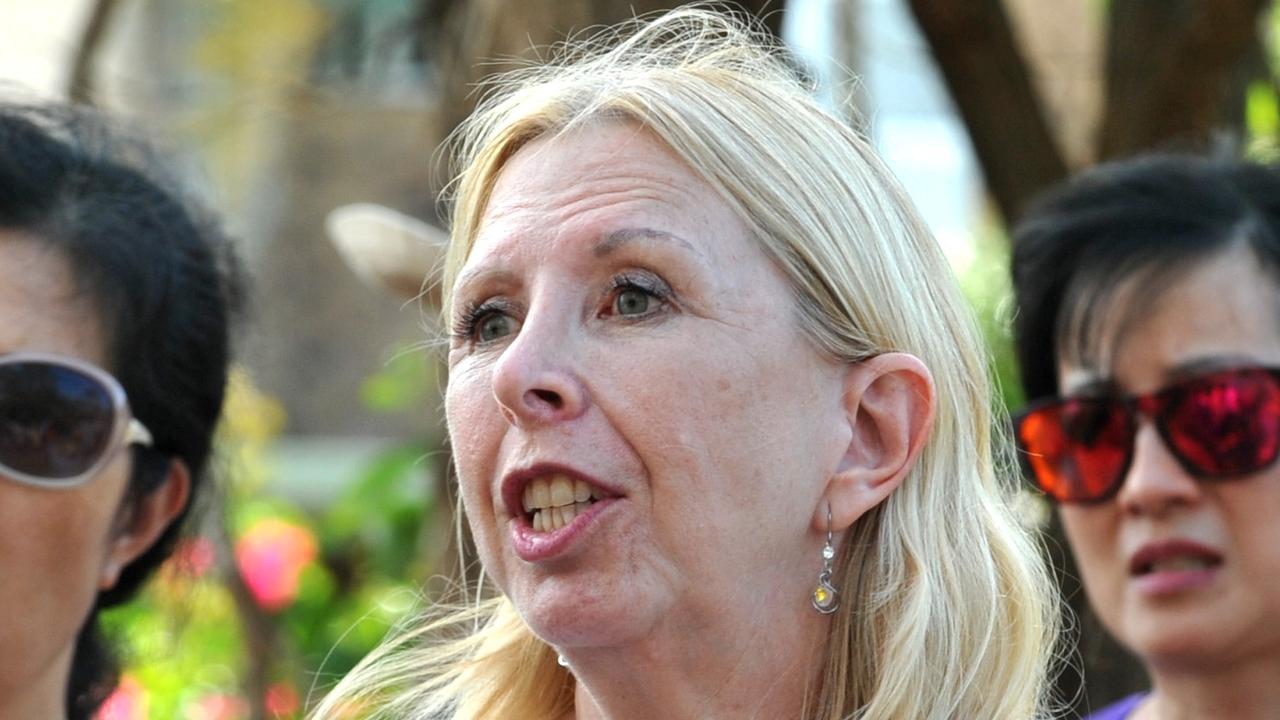Silks warn pandemic bill will grant Daniel Andrews ‘unlimited, unreviewable power’
A former chief crown prosecutor and royal commission counsel assisting are among 60 silks to sign an open letter condemning Premier’s pandemic bill.

Some of Melbourne’s most prominent legal figures are among 60 QCs who have now signed an open letter expressing concern that the Andrews government’s pandemic legislation could allow the Premier to “rule the state of Victoria by decree”.
Signatories of the letter, first circulated late last month, now include counsel assisting the Black Saturday bushfires royal commission Jack Rush QC, former chief crown prosecutor Gavin Silbert SC and former IBAC deputy commissioner Andrew Kirkham QC.
The new signatures come as the Victorian Bar renewed its calls for the Andrews government to reconsider the controversial legislation, warning the bill would provide “grossly insufficient parliamentary supervision” over the power it will grant the health minister to exercise.

The Bar’s 12-page submission to the health department’s expert reference group on the bill comes after the legislation passed the Lower House last month, 51 votes to 26.
While Labor holds 55 of 88 Lower House seats, it is expected to gain the required support of at least three crossbenchers to pass the legislation in the Upper House later this month.
The open letter expresses grave concern that the bill, if passed, “may allow the Victorian government effectively to rule the State of Victoria by decree for the foreseeable future, without proper parliamentary oversight or the usual checks and balances on executive power.”
The QCs state in their letter that the bill would effectively confer “an unlimited and practically unreviewable power” on the state’s health minister.
“The minister can make a pandemic order while a “pandemic declaration” made by the Premier is in force. Given the low threshold for the making of this declaration (s 165AB) and the fact that COVID-19 is unlikely to be going away any time soon, we can expect a pandemic declaration to be in force for the foreseeable future,” the QCs argued.
“Once a pandemic declaration is in place, the only other requirement for the minister to make a pandemic order is that he or she must believe that the order is “reasonably necessary to protect public health”.
“Not only is this threshold low, but it does not need to be satisfied objectively — it is enough if the minister subjectively believes that the order is “reasonably necessary”.
“This will make it practically impossible to challenge the merits of the order in a court.
“A person wishing to challenge the order on the merits will need to establish legal unreasonableness.
“This is a very high bar that might catch only the most extreme forms of overreach.”
The QCs also expressed concern about a provision in the legislation to allow pandemic orders to “differentiate between or vary in its application to persons or classes of person identified by reference to an attribute within the meaning of the Equal Opportunity Act 2010”.
“The latter includes a wide range of protected attributes including ‘political belief or activity’,” the QCs wrote.
“Thus, the Bill expressly contemplates that the minister can make a pandemic order targeting persons on the basis of their political beliefs or activities if the minister forms the view that this is ‘reasonably necessary to protect public health’.
“It is not difficult to imagine how some future health minister might form this view in respect of political beliefs or activities that involve questioning or opposing the government public health measures.”
Those who have signed the letter include The Hon James Judd QC, Jeff Sher QC, The Hon Neil Brown QC, Andrew J Kirkham AM RFD QC, Ross H Gillies QC, P Gerard Nash QC, Christopher J Canavan QC, Paul Willee RFD QC, George H Golvan QC, John T (Jack) Rush QC, Noel Magee QC, David Shavin QC, Peter J Jopling AM QC, William T Houghton QC, Patrick Tehan OAM QC, Michael W Shand AM QC, Paul A Scanlon QC, Nunzio Lucarelli QC, Jennifer J Batrouney AM QC, Vincent A Morfuni QC, James W S Peters AM QC, Peter W Collinson QC, Christopher J Wren QC, Gavin Silbert QC, Craig W R Harrison QC, David L Brustman QC, Philip D Crutchfield QC, Peter Chadwick QC, Albert Monichino QC, Daryl J Williams AM QC, Georgina L Schoff QC, David J Batt QC, Stuart Wood AM QC, Mark A Robins QC, Michael G Roberts QC, Nicholas D Hopkins QC, Gregory P Harris QC, Roisin N Annesley QC, Robert Hay QC, Jeremy A F Twigg QC, Jonathan P Brett QC, Aine M Magee QC, Chris B O’Grady QC, Gerard D Dalton QC, Michelle Britbart, QC, Daniel D Gurvich QC, Penny A Neskovcin QC, Marcus Clarke QC, Paul J Hayes QC, Michael G R Gronow QC, Suresh Senathirajah QC, Stewart J Maiden QC, Richard P P Dalton QC, Dr Andrew Hanak QC, Anthony T Strahan QC, Cam H Truong QC, Eugene F Wheelahan QC, Matthew N C Harvey QC, Donald J Farrands QC, Julianne E Jaques QC, Darryl J Burneet, Robyn W Sweet and Dimitri Ternovski.
Paul Hayes QC said there should be bipartisan concern about the bill.
“Think of the politician you least like or trust, and imagine them holding such unchecked power,” Mr Hayes said.
“If a week is a long time in politics, imagine who could be holding that power in a year, four, five years’ time.
“I’m surprised there isn’t a greater level of bipartisan concern over a bill which haphazardly sidesteps the democratic process.
“The core institution of our democracy, which is parliament, and the preservation of the checks and balances within the parliamentary system, and the safeguards it provides, should be something all persons are concerned about, irrespective of their political views.”
Victorian Bar renews critique
Victorian Bar president Christopher Blanden last month declared “Stasi police would have been more than happy with the range of powers” the bill grants the government.
“The essence of the Victorian Bar’s concern is that the bill seeks to take powers that were intended to be used for a very limited period of up to six months in an unforeseen emergency, and to entrench them as the ordinary method of dealing with pandemic diseases over extended periods,” the Bar says in its latest summary, issued on Wednesday.
“The Victorian Bar emphasises that the rule of law, the sovereignty of parliament and the checks and balances of our democratic Westminster system of government must be respected, even in times of emergency or crisis.
“While broad emergency powers that circumscribe ordinary checks and balances of our democracy may be justified to deal with an unforeseen crisis in the short term, they are not appropriate for the management of risks over extended periods.”

The Bar notes that while it believes it is appropriate that powers currently held by the chief health officer be transferred to elected officials such as the premier or health minister, “the minister’s powers to make pandemic orders are extraordinarily broad”.
“The Victorian Bar believes that the Bill provides grossly insufficient parliamentary supervision over the minister’s exercise of that power,” the Bar argues.
The summary also expresses concern about the Bills empowerment of the CHO to authorise officers to exercise pandemic management powers.
“This includes the power to take any action or give any direction, other than to detain a person, that the authorised officer believes is reasonably necessary to implement or give effect to a pandemic order or to protect public health,” the Bar says.
“These are breathtakingly broad powers for a class of person that can include numerous low level public officials.
“While the emergency powers in s 200 of the Public Health and Wellbeing Act 2008 allow for an officer to make “any other direction that the authorised officer considers reasonably necessary to protect public health”, those are intended to be short-term emergency powers.
“They ought not be entrenched and unlimited in time.”
In light of serious concerns raised about the bill, the bar is urging the government to delay its introduction to the Upper House, “so as to seriously consider the issues that have been raised, and make amendments”.
Pakula defends legislation
Andrews government frontbencher and former attorney-general Martin Pakula defended the legislation, claiming detractors were objecting to powers being given to elected politicians.
The Bar and state opposition have both argued they are objecting to the nature of the powers, not the fact that they are being transferred from health bureaucrats to elected members of the government.
“These are fundamental decisions … whether it‘s about public health orders or penalties … it is my view that those orders ultimately should be signed off by a member of the cabinet,” Mr Pakula said.
“That is what apparently people object to so ferociously. That’s fine, people can object to that.”
Mr Pakula said the government wanted the legislation that passed the Lower House to pass the Upper House without amendments.
“The legislation that passed the Lower House is the legislation that we would like to see pass the Upper House,” he said.
“Whether or not that‘s the case … I have been a member of the Upper House. I’m not at the moment. I’ll let my colleagues who are doing those negotiations with the crossbench speak to that.”
He said he was a “supporter of the legislation”, despite intense public criticism of the proposed laws.
“I think much of that (public anger) is misguided, and I think much of it is the result of a deliberate campaign of misinformation that‘s being peddled by others,” he said.
“The fact of the matter is, you know, that this legislation takes fundamentally existing powers that reside in the hands of public servants and places them in the hands of elected officials which is exactly what the leader of the opposition said should happen.
“It‘s what happens in New South Wales and in other places.”
Following demonstrations against the bill on the steps of Victoria’s parliament on Tuesday, Mr Pakula said Upper House MPs would engage in a “spirited debate” about the proposed laws.
“Members of parliament should be able to engage in that debate and consider their vote in that debate, without threats of violence, without abuse and vitriol, which is what they‘re copping at the moment,” Mr Pakula said.
“I don‘t I don’t know whether any of the crossbench in the Upper House will move amendments,” he said.
“I am quite certain that some will and it’s quite likely that the Opposition may.”
Opposition Leader Matthew Guy described the bill as “the most dangerous piece of legislation we’ve seen to come before the Victorian parliament”.





